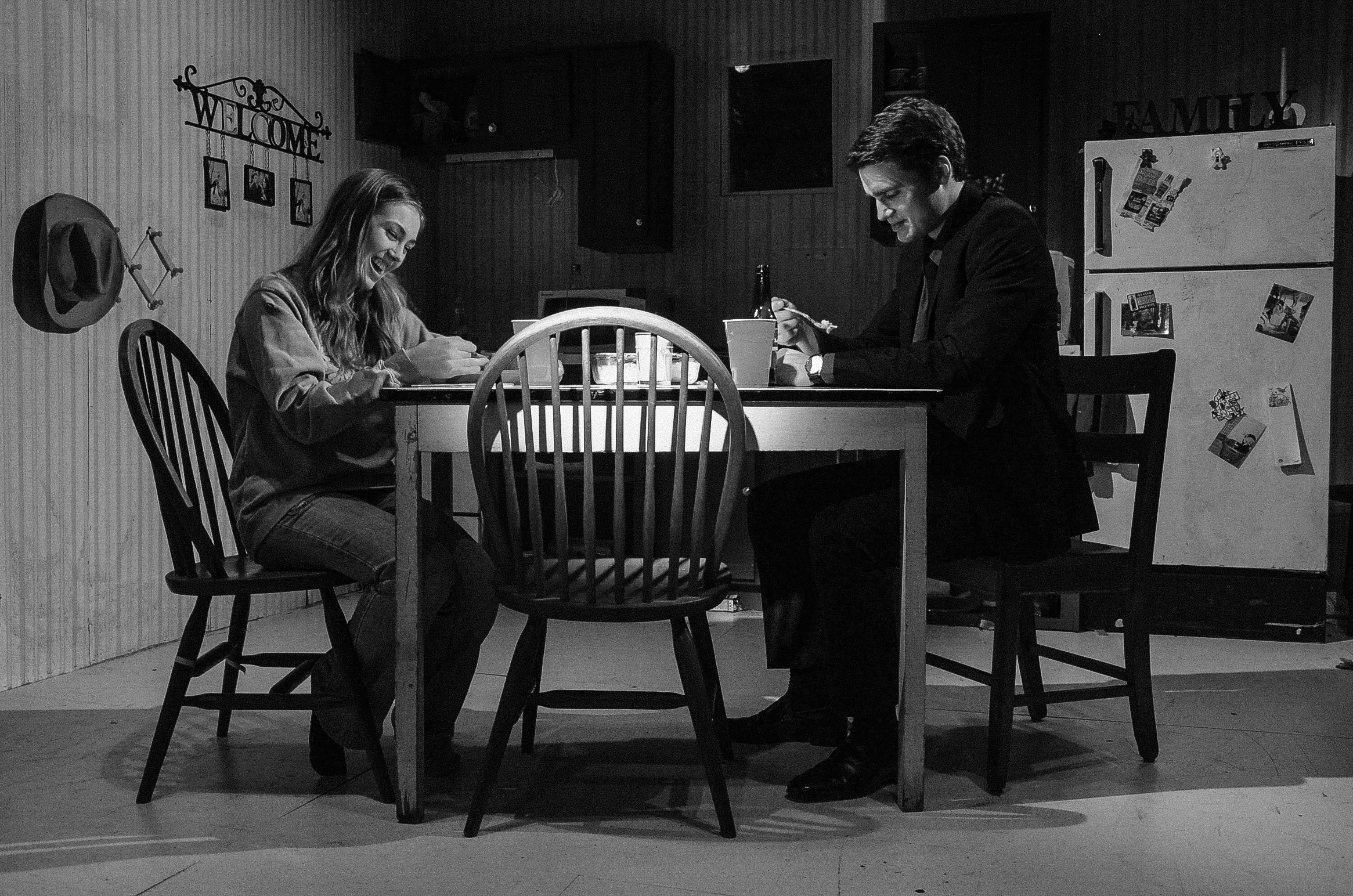Killer Joe packs a punch as strong as its main character. The new collaboration between Mask and Bauble Dramatic Society and Nomadic Theatre brings serious themes to the forefront, achieving a pleasant combination of irony and drama that hits the thematic nail right on the head.
The show opens in Walsh Black Box Theatre with the sight of the Smith family trailer. Chris, played by Conor Ross (COL ’16), and his stepmother Sharla, played by Nora Genster (SFS ’16), begin the scene yelling, cursing, and name calling setting the continuously aggressive tone of their family dynamic.
Chris is desperately seeking money from his dad Ansel, played by Wendell Krebs (COL ’15). With no money and no other options, Ansel agrees to Chris’s twisted plan to hire Killer Joe Cooper, played by Conor Canning (COL ’16), to kill their estranged mother and ex-wife, who remains unseen throughout the show. Her substantial life insurance policy entices Chris, Ansel, Sharla, and Chris’s sister Dottie, played by Emily Lett (COL ’17), pushing them over the brink of impropriety, calling the audience to consider the measures this family takes for the opportunity to start a new life.
In its raw portrayal of sensitive issues such as sexual assault, violence, mental illness, and infidelity, Killer Joe succeeds with an uncomfortable, yet admirable authenticity. Director Andrew Walker (SFS ’16) and producer Sarah Konig (COL ’16) chose to produce Killer Joe for its well-written, humorous depiction of the darker, thought-provoking themes throughout.
These themes shed light on issues already in conversation at Georgetown, but in a different way. “Georgetown is very committed to dialogue about pluralism, which is something I have really valued in my time here. Still, this dialogue is often strained and polite, and the benefits of a black comedy like Killer Joe is that the visceral reactions of the audience takes the strain and politeness out of this conversation,” said Walker.
The complexity of each character challenges the actors’ emotional as well as physical acting abilities. Canning brilliantly assumes the disturbing, angry, and manipulative sensibility of Joe while performing tense fight scenes, with a believable pain-inflicting strength. Remarkably, each member of the small cast gives this same impressive amount of effort in the emotional and physical development of their characters. While her character’s lines are awkwardly short and nonsensical at times, Lett uses that to her advantage with an incredible use of nonverbal communication, producing one amazing and vulnerable performance.
Especially in scenes between Joe and Dottie, the script consistently pushes the actors to reveal themselves both emotionally and physically. Even in these demanding scenes, the actors showed an aura of confidence—expressing their character’s discomfort and uncertainty of interacting with the other. That plethora of emotions each character goes through feels very real to the audience during those moments.
An unchanging setting of the Dallas trailer never seems stagnant. Shifts in lighting and details in the set design allow the audience to travel with the senses, feeling the light of day turn to darkness, and noticing idiosyncratic eating and cleaning, or lack thereof, habits of the family. Empty beer bottles, food containers, and the ironic, not-so-subtle “Keep Calm and Carry On” poster hanging on the wall give the audience insight into their dysfunctional story.
Killer Joe will make you laugh, it will make you cringe, and most importantly, it will not hold back its punch as a conversation starter.
Walsh Black Box Theater
March 25-28, 8 p.m.
March 28, 2 p.m.
performingarts.georgetown.edu
Photo: Ainhoa Hardy/The Georgetown Voice





